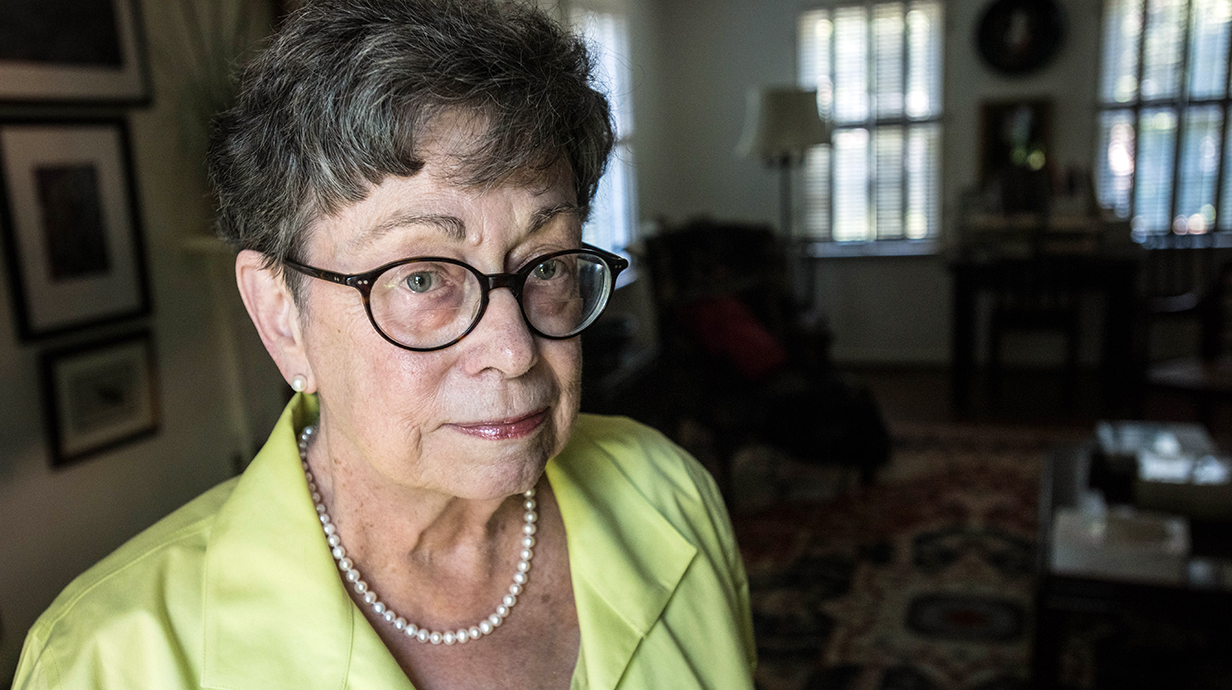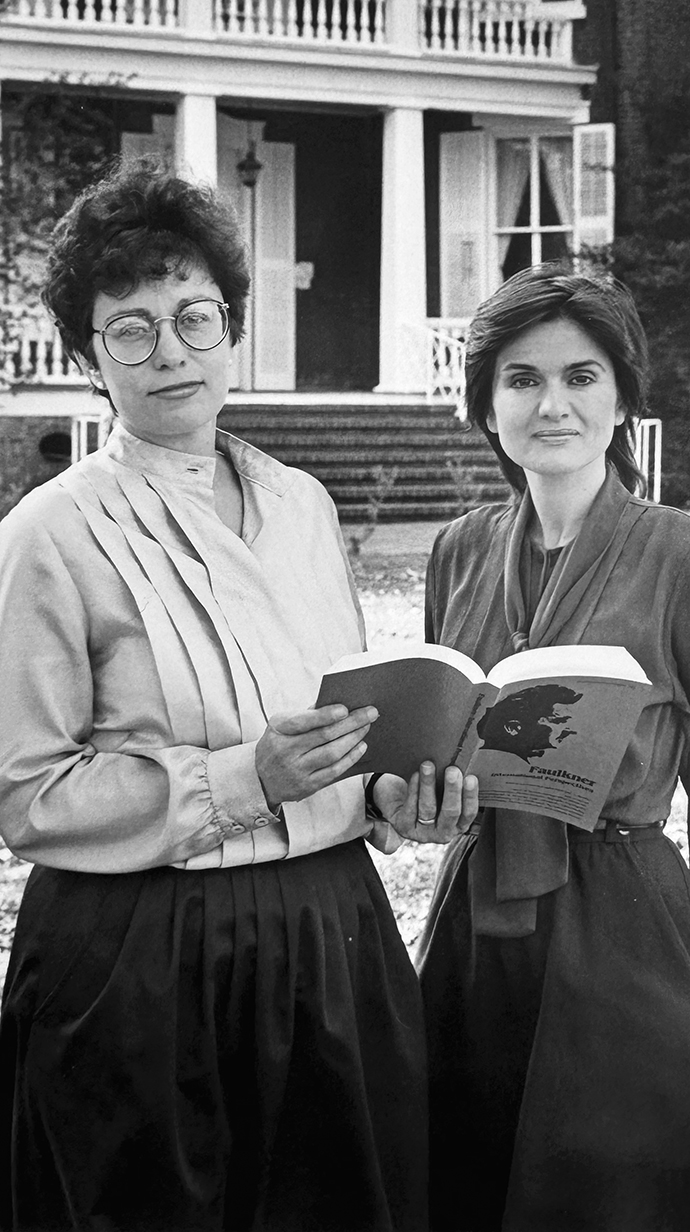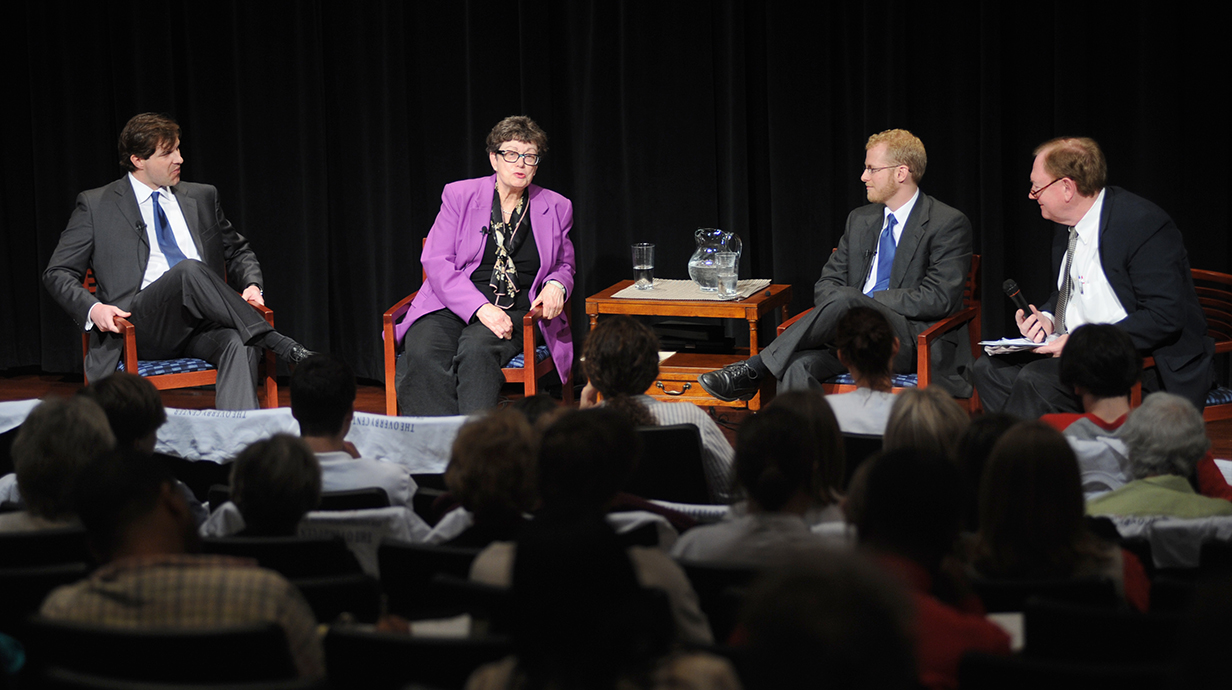Abadie Remembered as Visionary Champion of Southern Culture
Administrator, scholar recognized for role in founding Southern culture center, literary conferences
OXFORD, Miss. – Ann Abadie admittedly did not like the spotlight, but she was a behind-the-scenes champion: of culture, of literature and of community.
Abadie, director emerita of the Center for the Study of Southern Culture, died Tuesday (July 30) and leaves a legacy of visionary leadership at the University of Mississippi and beyond.
"There is not a Center for the Study of Southern Culture, as we understand it today, without Ann Abadie," said Kathryn McKee, the center's director. "I don't think we would have the contemporary center at all without Ann's vision and energy.
"She knew what the center could be, and we are living that legacy every single day."

Ann Abadie, a South Carolina native, came to the university because of her love for the works of author William Faulkner. Abadie leaves a remarkable legacy as creator of numerous academic and cultural initiatives at Ole Miss and across north Mississippi. Photo by Kate Medley/Southern Foodways Alliance
Instrumental in the founding of the center in the mid-1970s, Abadie served as director and then associate director from 1979 to 2011.
"At the Center for the Study of Southern Culture, we want to connect people so they can learn from one another," said Ted Ownby, a former director of the center. "Ann had a particular interest in connecting scholarship to audiences outside of universities.
"Whether it was gatherings of scholars with fans, or with novelists for adults with novelists for children along with editors and teachers, she was always looking for ways for the center to bring together groups of people who might not otherwise be in the same place. That was one of her strengths and passions."
She helped found the Faulkner and Yoknapatawpha Conference and co-edited its annual volume of proceedings from 1974 to 2012.
This year, the conference celebrated its 50th anniversary. Abadie discussed the first conference and its unexpected impact in a recent article about the anniversary.
"I called The New York Times book review section and the only ad we could afford was one little column about an inch and a half across – just a little tiny thing," Abadie said. "It came out and the phones started ringing off the hook from across the country and Paris and Japan and everywhere. Not Paris, Mississippi; the other Paris."

Ann Abadie (left), longtime director of the Faulkner and Yoknapatawpha Conference, and Doreen Fowler, a Faulkner scholar in the Department of English, look over a volume of proceedings from the ninth annual conference in 1982. UM photo
It was Faulkner that initially drew the Greenville, South Carolina, native to Oxford for graduate school in 1960. Abadie had earned a Bachelor of Arts in English and history from Wake Forest University and ultimately received her master's and doctorate in English from Ole Miss.
Richard Howorth, owner of Square Books, was a longtime friend. He recalled her pivotal role in creating the Oxford Conference for the Book.
"I approached her at one point and said, 'What if we had a different kind of conference that celebrated other writers and invited them to Oxford?'" Howorth said. "She said she it would take a few years, and sure enough, two or three years later, she said, 'OK, what are we going to do?' That's how the book conference started."
Howorth said Abadie did the "lion's share" of the work on the conference, which was typical of her.
"Among her many attributes, she was a hard worker," he said. "She would be at the center when there was only one light left on in the building, and it was hers."
Not only did she excel in her many professional roles, but she also excelled in the kitchen.
"She made a mean, locally known pound cake," Howorth said. "She was a marvelous cook and learned all these Louisiana dishes that her husband, Dale, loved. Anything she took an interest in, she mastered."
Abadie's contributions extended to various cultural projects, including coediting the Encyclopedia of Southern Culture, the New Encyclopedia of Southern Culture and the Mississippi Encyclopedia. The University Press of Mississippi credited her as being the most published author in its repertoire, with 36 books in print and several others out of print.
She also played a key role in establishing the Southern Foodways Alliance. Mary Beth Lasseter, co-director of the alliance, met Abadie more than 20 years ago.
"She worked harder than any person I knew; I never saw her without a tote bag that held the book manuscripts and Southern Register articles she proofread between meetings," Lasseter said. "She was never one to step out and claim credit for her work, but her legacy lives on in the Center for the Study of Southern Culture, Yoknapatawpha Arts Council, the Faulkner and Yoknapatawpha Conference, the Oxford Conference for the Book, and countless other cultural events that exist due to her tireless efforts.
"Oxford is a better place because she was a part of it."

Ann Abadie (second from left) discusses the 2008 presidential race during a panel discussion hosted by the Overby Center for Southern Journalism and Politics. Photo by Kevin Bain/Ole Miss Digital Imaging Services
Her work earned her the Mississippi Institute of Arts and Letters' Noel Polk Lifetime Achievement Award and the Southern Foodways Alliance's Craig Claiborne Lifetime Achievement Award.
Ethel Young Scurlock, dean of the Sally McDonnell Barksdale Honors College, reflected on Abadie's energy, artistic vision and love for bringing people together.
"When Ann organized the book conference, she challenged the norm by bringing celebrated Black writers to Oxford like Tayari Jones, Natasha Trethewey, Tyehimba Jess, Jerry Ward and Thomas Sayers Ellis," said Scurlock, whose friendship with Abadie spanned three decades.
"While she officially retired from the university a while back, Ann never retired from bringing people together for riveting engagement of the arts. I will miss her love, light and abundant energy."
Abadie is survived by her husband, H. Dale Abadie; three children; five grandchildren; two sisters; and several nieces and nephews.
Visitation will be held at St. John the Evangelist Catholic Church in Oxford at 1:30 p.m. Friday (Aug. 2), followed by a funeral Mass at 3 p.m. A private interment will follow.
Memorials can be made to the Center for the Study of Southern Culture or the St. John Benevolent Fund.
Top: Ann Abadie is being hailed as a visionary leader at the university and across the Oxford community. The longtime English professor and administrator is credited with playing key roles in the creation of the Center for the Study of Southern Culture and the university's Southern studies degree program, the annual Faulkner and Yoknapatawpha Conference, the Southern Foodways Alliance, and numerous publications on Southern literature and culture. Photo by Kate Medley/Southern Foodways Alliance
By
Erin Garrett
Campus
Office, Department or Center
Published
August 01, 2024
